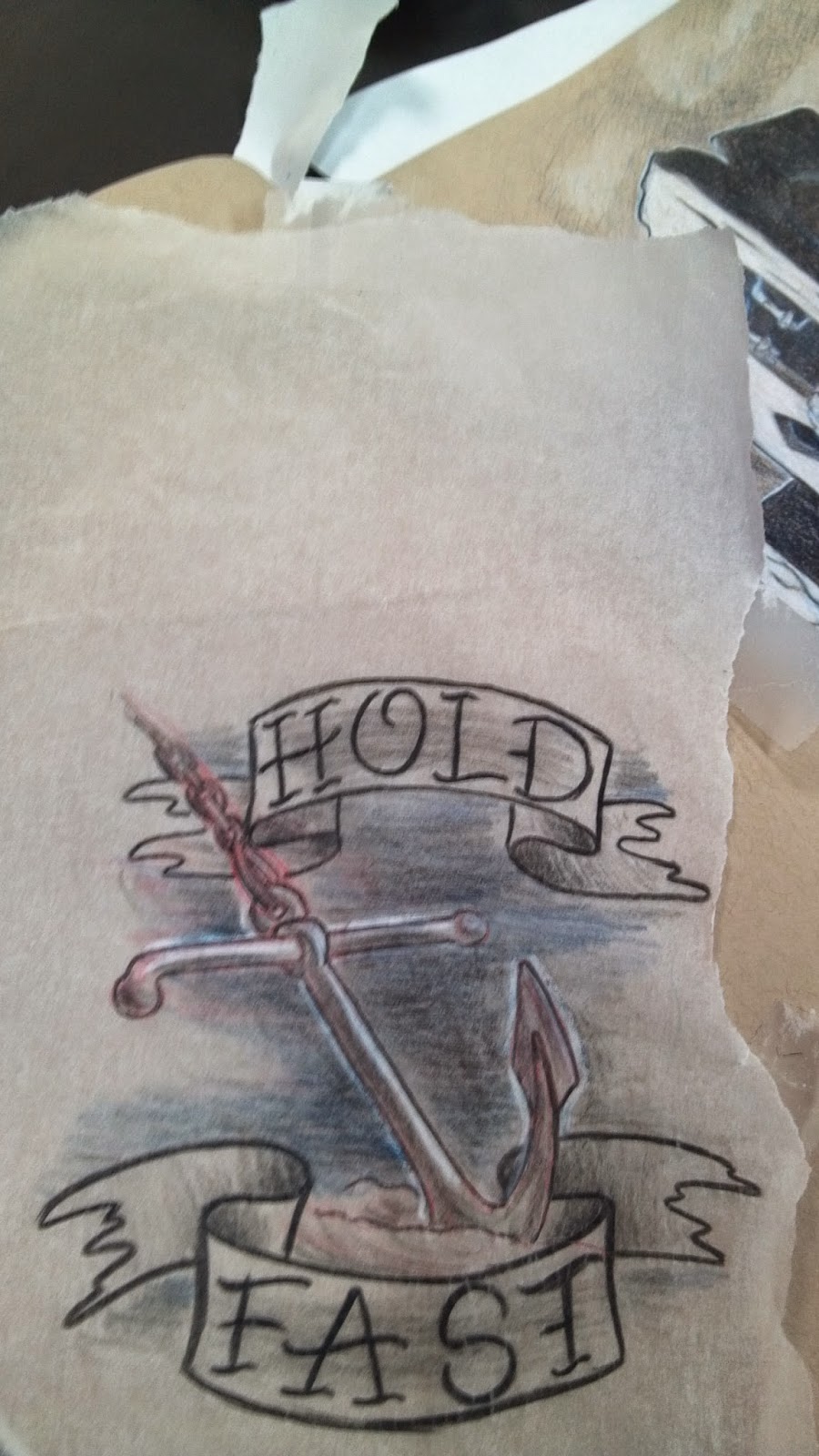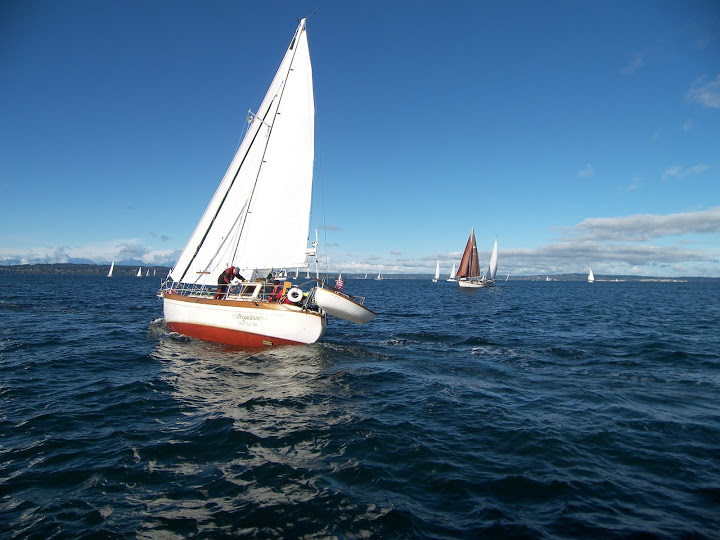I was focused on the safety and seaworthiness of Brigadoon and the care and feeding of her crew. We'd agreed to take a friend along on the offshore journey -- Patrick had called us and wanted an adventure. He'd never been offshore on a sailboat before.
 | |
| Patrick, Donn, and Kerry at Siren's in Port Townsend |
We left Port Townsend on Thursday morning, September 5th at 11am. It took 11.5 days, with stops in Port Angeles, Neah Bay and Crescent City, California.
This was to prove our most challenging journey to date.
The trip to Port Angeles was calm and uneventful. A nice quiet start. Kerry waved goodbye to her parents as we passed the Point Wilson lighthouse. The three of us walked into town and enjoyed a nice Italian dinner that evening and went to bed early to be ready to fuel up and leave for Neah Bay the next morning.
An hour out of Port Angeles, the wind was on our nose, we became enveloped in thick fog and the waters started to churn. We then slowly inched our way to Neah Bay in increasingly foul conditions. Kerry had to put on the patch and struggled with seasickness. It took us 14 hours to get to Neah Bay that day. We entered the unfamiliar harbor in quieter conditions, but at night. Kerry used our powerful flashlight beam to find our slip as we slowly motored in. We stayed for two nights so we could rest up. I changed the oil, discovered our impeller belt needed to be replaced, and made sure everything was in order.
We departed Neah Bay in pea-soup thick fog and motored out the Strait and into the Pacific. Facing calm conditions, and a fog that slowly burned away under the sun, our course took us farther and farther west until we were 100nm offshore. This was to avoid the rougher waters common along the Washington and Oregon Coast and to give us some experience being really out there.
That was an odd part -- the world -- the land -- just going away.
Kerry and I shared the watch schedule - at night, 3 hours on, 3 hours off. During the day, we played with 4 on and 2 off. It seemed to work pretty well. Patrick helped by keeping us company when he was up and doing the lion's share of the cooking and dishes. Based on our experience on this trip, I know Kerry and I can do this alone when we do our next longer voyage.
 |
| First Sunset at sea - September 8, 2019 |
Combine this with the 2-3 meter swells that made sailing well nigh impossible. There wasn't enough wind to keep the sails full and powered up as the swells caused Brigadoon to roll enough to slat the sails and make them useless.
Then there was me, rigging the Asym sail backwards...you'd think I'd learn...
There's always something to learn, some new challenge to figure out while underway. This trip was going to be about engine and fuel management.
Ironically - Kerry and I both used the patch on this trip and Patrick didn't suffer from any discomfort at sea at all.
We were 100nm north of Crescent City when our calculations made it clear that we wouldn't have enough fuel to make it to San Francisco with an adaquate reserve. So, we decided to divert to Crescent City for fuel.
We stayed in Crescent City for two nights also. Again - rest was needed at this point. I changed the oil again, we did laundry, took showers, rested.
The final leg to SF was similar -- strong rollers and little wind. Our 4000hr Yanmar engine pushed us along at 5 kts and a quiet(er) 2100 rpm than our usual 2600 rpm. All I had to do was check and top up the engine oil every 24 hours and ensure the fuel filters were flowing and we were good to go.
We spent the last day along the California coast planning our entrance to the Golden Gate and San Francisco Bay. Various guides warned about traffic and current challenges entering the bay. They all cautioned against rounding Point Bonita and crossing under the gate during an ebb tide -- something about heavy currents and rough water (seen this before many times in the Puget Sound).
So we slowed a little and, instead of sailing under the Golden Gate on a beautiful sunset, we had to wait and enter at about 9:30 PM. The ebb was down to about 1.5 kts and I knew we could handle that. It was a rough and bouncy ride anyway, around that point, but as soon as we turned in towards the bridge the point shielded us from the two meter swells that were banging against that current. After I stood at the wheel for over an hour, riding Brigadoon like she was an angry horse trying to toss me off, we finally approached the bridge.
And there we were, crossing under the Golden Gate.
The bay was calm and beautiful as we motored past the Golden Gate, past Fisherman's Wharf and the city, past Treasure Island and under the Bay Bridge and finally into our slip at 11:30 PM.
That was hard. We were beat.
We covered 822 nautical miles in 11 days, with four days at the dock, and 179 hours of motoring that engine.
Alameda is nice. We have a home for a while.
 | |
| Brigadoon in her slip in Alameda - September 17, 2019 |





































